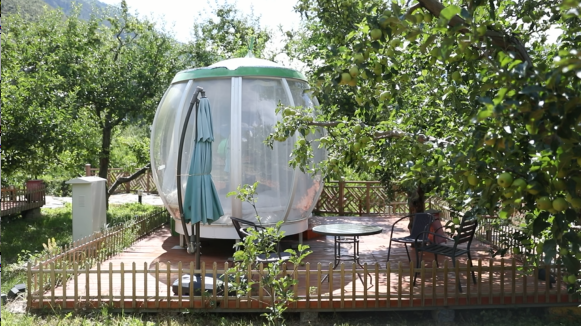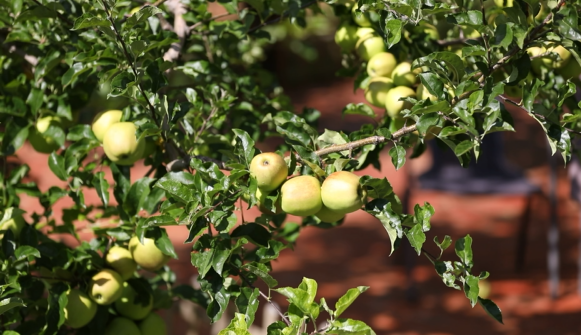01:31

Situated 2,600 meters above sea level, Mulan Village was the first to set up and operate a shared farm in Aba Tibetan and Qiang Autonomous Prefecture, southwest China's Sichuan Province.
The shared farm on the plateau is a cooperation between Mulan Village and Xinjin District in Sichuan's Chengdu City, and was launched in May 2019. The latter invests capital and introduces enterprises to set up a shared farm using the former's scattered resources, such as land, orchards and houses.
The government, enterprises and the village have worked together to create a new sharing economy model that integrates the internet, agriculture and rural inns to drive the local economy.

Mulan Village covers an area of 30 square kilometers, and has 446 households with 1,572 residents. The village has 1.23 square kilometers of cultivated land and 2.76 square kilometers of woodland.
In the past, due to the large number of migrant workers in the village, there were many idle orchards, land and houses. Mulan Village made use of these idle resources to build the shared farm, integrating leisure sightseeing, agricultural experience and product sales.
"Since the establishment of our shared farm project, many jobs have been created for the villagers, and many young people also returned to start their own businesses," said Yang Man, the head of the shared farm.
On the farm, villagers not only receive rent for the land, but also wages for working. Also, they become shareholders in the farm, receiving dividends based on their shares.
Nowadays, more and more tourists come to the village, boosting the local economy.

The shared farm uses the internet economy to promote local specialties to the whole country, which increases villagers' income. Driven by the shared farm program, Xiaojin apples, Chinese pepper, walnuts, potatoes, matsutake, sea buckthorn and byproducts have been sold to consumers all over the country.
"Local agricultural products are sold online and offline. Offline, villagers can sell local products such as apples, matsutake and sea buckthorn through stores. Online, villagers use the internet celebrity economy to sell goods via livestreaming," said Yang Man.
"Through this sales mode, our products, like the local apples, which used to sell for a few cents per 500 grams, have now doubled in price several times," she added.
The shared farm model of Mulan Village has led to the continuous increase of villagers' income. The change in Mulan Village is just a microcosm of Sichuan Province's efforts to promote rural vitalization.

(Images and video by Wu Jinjing, and edited by CGTN's Gao Yuxin.)
(If you want to contribute and have specific expertise, please contact us at nature@cgtn.com.)

